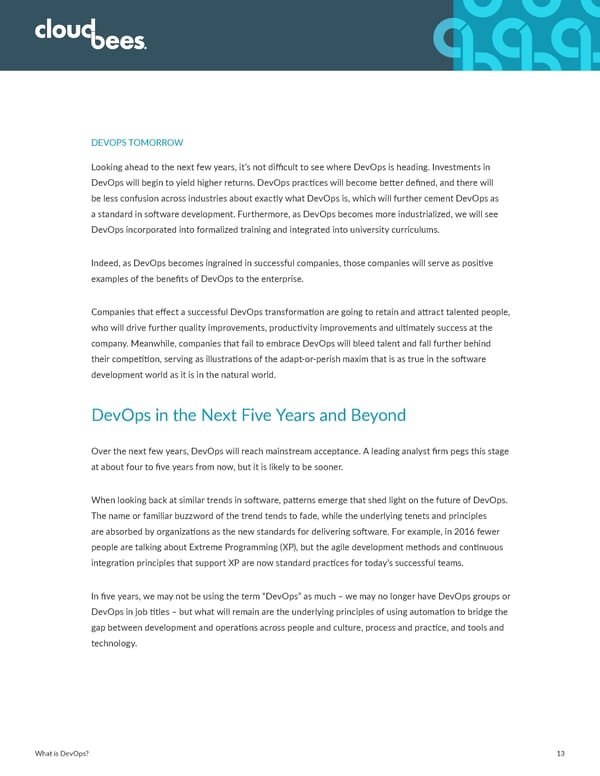DEVOPS TOMORROW Looking ahead to the next few years, it’s not difficult to see where DevOps is heading. Investments in DevOps will begin to yield higher returns. DevOps practices will become better defined, and there will be less confusion across industries about exactly what DevOps is, which will further cement DevOps as a standard in software development. Furthermore, as DevOps becomes more industrialized, we will see DevOps incorporated into formalized training and integrated into university curriculums. Indeed, as DevOps becomes ingrained in successful companies, those companies will serve as positive examples of the benefits of DevOps to the enterprise. Companies that effect a successful DevOps transformation are going to retain and attract talented people, who will drive further quality improvements, productivity improvements and ultimately success at the company. Meanwhile, companies that fail to embrace DevOps will bleed talent and fall further behind their competition, serving as illustrations of the adapt-or-perish maxim that is as true in the software development world as it is in the natural world. DevOps in the Next Five Years and Beyond Over the next few years, DevOps will reach mainstream acceptance. A leading analyst firm pegs this stage at about four to five years from now, but it is likely to be sooner. When looking back at similar trends in software, patterns emerge that shed light on the future of DevOps. The name or familiar buzzword of the trend tends to fade, while the underlying tenets and principles are absorbed by organizations as the new standards for delivering software. For example, in 2016 fewer people are talking about Extreme Programming (XP), but the agile development methods and continuous integration principles that support XP are now standard practices for today’s successful teams. In five years, we may not be using the term “DevOps” as much – we may no longer have DevOps groups or DevOps in job titles – but what will remain are the underlying principles of using automation to bridge the gap between development and operations across people and culture, process and practice, and tools and technology. What is DevOps? 13
 What is DevOps ? Page 13 Page 15
What is DevOps ? Page 13 Page 15